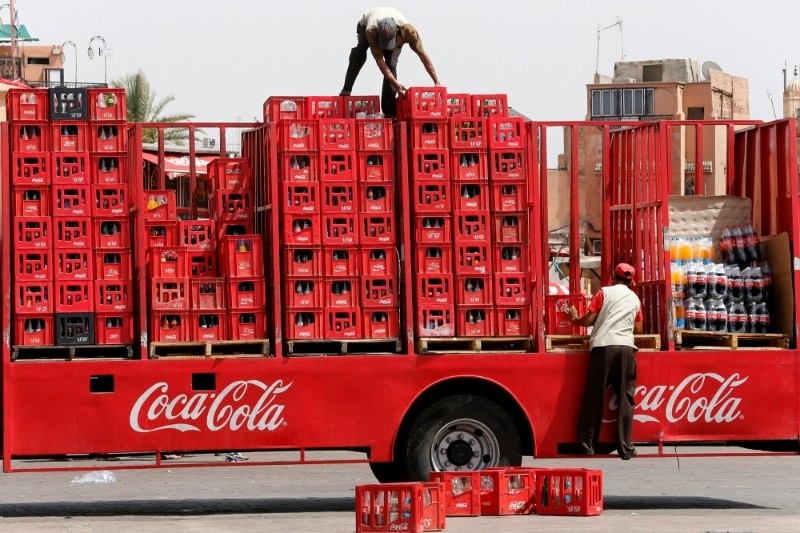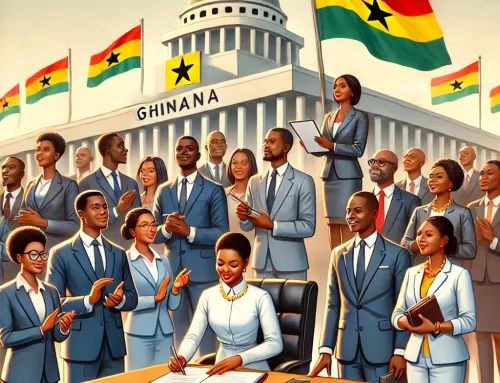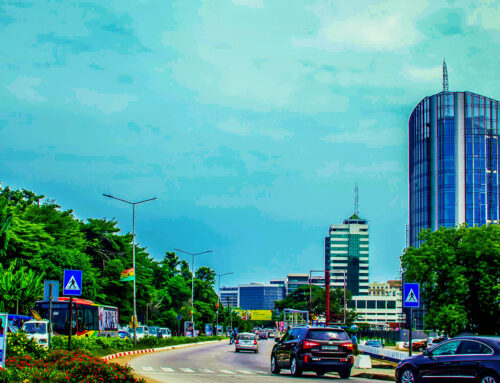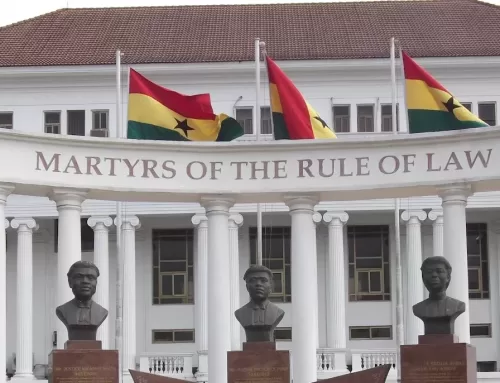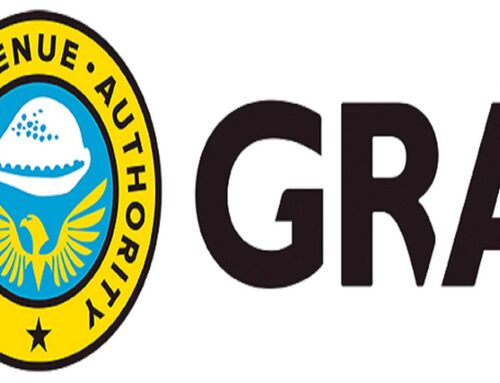The high court on 10 November 2022 gave a ruling on Coca-Cola Eequatorial Africa limited vs. the commissioner general
PROCEDURE HISTORY
This is an appeal against a final tax decision by the Commissioner-General on a tax assessment of Coco-Cola Equatorial Africa Limited.
BACKGROUND OF THE CASE
Coca-Cola Equatorial Africa Limited (the “Appellant”) is a company engaged in the business of extraction and sale of water under its Voltic brand and provides marketing and other support services to its affiliates as well as other related administrative activities to the Coca-Cola Export Corporation. The Commissioner General of the Ghana Revenue Authority (the ‘’Respondent’’) is the head of the Ghana Revenue Authority (“GRA”), a statutory body responsible for tax administration and revenue collection in Ghana. In December 2019, the Respondent conducted a tax audit into the activities of the Appellant from 2016-2018. After the assessment, the Respondent issued a final audit report and after appeal against same by the Appellant, a final tax liability of GHs33,143,375.15 comprising a direct tax liability of GHs25,428,311.59 and an indirect tax liability of GHs7,715,063.56 was imposed on the Appellant. The Appellant still aggrieved by the Respondent’s decision filed an appeal at the High Court.
ISSUES RAISED
- Whether or not the payment of GHS88,862,404.00 by the Appellant to Voltic International constitutes an outright purchase of a Trademark and therefore not subject to withholding tax?
- Whether or not the Appellant is not liable for withholding tax on transactions between 2017-2018 which were later reversed and not invoiced for payment?
- Whether or not the withholding tax on the reimbursed staff salaries amounted to double taxation when the required PAYE taxes had already been paid to the Respondent by the employment agency of the Appellant?
- Whether or not the Respondent erred by construing the Appellant’s trade discount as a commission and therefore subjected same to a withholding tax of 7.5% in the 2017 assessment?
- Whether or not the Respondent erred in law by imposing a withholding tax of 15% on the Appellant’s trade discount in the 2018 assessment?
- Whether or not the supply of service by the Appellant consumed outside the jurisdiction is subjected to VAT, NHIL and GETFund Levy by the Respondent contrary to item 3(3) of the second schedule of the Value Added Tax, 2013 (Act 870)?
THE APPELLANT’S CASE
To the appellant, payment made to Voltic International Inc. was in respect of outright purchase of intangible asset (trademark) than royalties for the use of trademark. Withholding should therefore not apply to the payment. Trade discount is a performance based and can be accumulated and given at the end of the year. The discount should therefore not be construed as commission for the purposes of Withholding tax.
The Commissioner-General cannot in law impose withholding tax on accrued transactions/expenses which were subsequently reversed for non-performance and therefore not invoiced for payment. Reimbursement of staff salary to employment agency should not suffer withholding tax particularly since PAYE have already been deducted by their employers before the amount were finally paid to them. The respondent was wrong to impose Value Added Tax (VAT); National Health Insurance Levy (NHIL) and Ghana Education Trust levy (GETFundL) on a supply of services by the Appellant, which was consumed outside the country, contrary to item 3(3) of the second schedule to the Value Added Tax, 2013 (Act 870).
THE RESPONDENT’S CASE
It is the Respondent’s case that the appeal is unfounded for the following reasons, in response to the issues raised:
- The Appellant failed to provide the Respondent with all the necessary documents to establish that the payment for the trademark to Voltic International was an outright purchase and not payment of royalties. The Appellant failed to provide a sale and purchaseAgreement to that effect and hence, withholding tax was applicable.
- Transactions/expenses for which withholding tax was imposed were captured from the financial statements of the Appellant. The Appellant did not provide any evidence to prove that the expenses incurred were subsequently reversed and indeed if the transactions had been reversed, it would not have formed part of the Appellant’s annual returns and financial statements.
- The service agreement between the Appellant and Voltic Ghana Limited for the provision of water extraction services did not evidence a contract for the supply of labour. Further, the Appellant made payment to Voltic Ghana Limited without withholding tax as required under the Income Tax Act. The Respondent however concedes that the correct rate to have been used is 7.5% instead of 15% which was used in the tax audit report.
- Trade discount is given as reduction on the original invoice price and not given at the end of the year.
- The trade discount was in substance a commission pursuant to Section 116(1)(a) (v) because the Appellant’s customersstill paid the full price of every supply made to them during the period under review. The commission is therefore subject to tax and the Respondent concedes that the appropriate rate to have been used is 7.5% and not 10% as used in the tax audit report.
- The Respondent repeats that the trade discount was in substance a commission pursuant to Section 116(1)(a)(v) because the Appellant’s customers still paid the full price of every supply made to them during the period under review. The Respondent did not double tax the Appellant, it merely erroneously taxed the amount at 10%. The commission is different from the understated revenue and as such, could not refer to the same thing.
- The fact that export is based in the USA does not negate the fact that the services for it were performed in Ghana therefore by the combined effect of Sections 1 and 5 of the VAT Act, 2013 (Act 870), the supply of service is subject to VAT.
GROUNDS OF APPEAL
The Appellant filed an appeal on the following grounds:
- The Respondent erred in law by imposing withholding tax, pursuant to Section 115(1) of the income Tax Act,2015(ACT 896) on the outright purchase of trademark by the Appellant from Voltic International Inc under the wrong assumption that the transaction was a payment for royalties;
- The Respondent erred in law by imposing withholding tax on accrued transactions/expenses which were subsequently reversed for non-performance and therefore not invoiced for payment;
- The Respondent erred in law by imposing withholding tax on expenses of staff salaries reimbursed to anemployment agency when the requisite PAYE taxes had already been withheld by the employment agency and paid over to the Respondent pursuant to section 114 of the income Tax Act, 2015 (Act 896);
- The Respondent erred in law by wrongly construing trade discount which had accrued in 2017 year of assessment as a commission and subjecting it to a withholding tax of 10%, purportedly pursuant to section 116 (1)(a)(v) of the income Tax Act 2015 (Act 896);
- The Respondent erred in law by imposing a withholding tax of 15% on the same accrued trade discount subsequently made available to the Appellant’s customer in the 2018 year of assessment; and
- The Respondent erred by imposing Value Added Tax (VAT); National Health Insurance Levy (NHIL) and Ghana Education Trust levy (GETFundL) on a supply of services by the Appellant, which was consumed outside the country, contrary to item 3(3) of the second schedule to the Value Added Tax, 2013 (Act 870).
DECISION OF THE COURT
ISSUE 1: The Appellant failed to prove that the trademark obtained was an outright purchase and not a right of use. Though the Appellant provided a Bill of Sale which conveys an intention to sell and purchase an asset, it does not state that the subject matter is the trademark in question or define what was sold and at what cost. The Bill of Sale subjects itself to the Asset Purchase Agreement which the Appellant failed to share with the court. In the absence of same, the Court infers that payments made were for user rights. Payments for user rights constitutes payment of royalties which are subject to withholding tax under Section 115(1) of the Income Tax Act.
ISSUE 2: The Appellant failed to provide the requisite documents to prove the reversal of the transactions/expenses incurred between 2017-2018 which was subjected to a withholding tax by the Respondent. The Appellant failed to execute the burden of proof laid on him to show that there had been compliance with the provisions of the tax laws as such, the Respondent did not err in subjecting the transactions to withholding tax.
ISSUE 3: The agreement in question is the Supply of Project Support Services agreement between the Appellant and FKV & Associates (the “Agreement”) and not the agreement between the Appellant and Voltic for water extraction services as mistaken by the Respondent. The Agreement was still in force for the period under review and therefore the imposition of a withholding tax on the reimbursed staff salaries when the requisite PAYE taxes had already been withheld by the employment agency was wrong in fact and in law and same be reversed by the Respondent.
ISSUE 4: The Respondent did not err in construing the discount as a commission and subjecting same to a withholding tax of 7.5% in the 2017 assessment as provided under section 116(1)(a)(v) of Act 870 and Regulation 21 of the Value Added Tax Regulation,2016(LI 2243). The alleged tax discounts were not stated on the tax invoices issued by the Appellant hence, there was no proof of discounts given. The Respondent has the right to re-characterise or disregard a transaction under Section 34 of Act 896 where the form of the transaction does not reflect its substance. The discount was in fact a commission.
ISSUE 5: the Respondent, in its Reply, admitted that the fourth and fifth ground of appeal refer to the same transaction. The law on admission is that where a person makes an admission on certain facts which are not traversed by the opponent, then the said facts are deemed to be admitted. On issue 4, the court already concluded that the amount was a commission under the guise of a discount. The Respondent cannot come up with another figure already considered as trade discount and fail to characterise its nature as a commission while imposing tax on same without justification. The Respondent thereby erred in imposing 15% withholding tax on the trade discount made to the Appellant’s customers in the 2018 assessment.
ISSUE 6: If the consumer business is located outside the country, the consumption of the service is deemed to be outside the country. Such services are therefore exported and zero rated for VAT purposes under item 3 of the Second Schedule of the VAT Act (“Act 870”). In the instant case, the services rendered by the Appellant under the agreement were mainly in the form of advice and recommendations to the Coca-Cola Export Corporation which is located outside the country, hence, the consumption of the service is also outside the country and should be zero rated for VAT purposes. The destination principle as espoused by OECD was applied.
IMPLICATIONS AND KEY TAKEAWAYS OF THE HIGH COURT’S DECISION
» In tax matters, the taxpayer bears the burden to show that there has been compliance with the provisions of the tax law per Section 92 of the Revenue Administration Act, 2016 (Act 915).
» With respect to the imposition of a penalty, including proceedings on appeal under or for the recovery of a penalty, the burden rests on the Commissioner General to show non-compliance with the provisions of the law per Section 92 of the Revenue Administration Act, 2016 (Act 915).
» Trade discounts offered to customers should always be written on the VAT invoice while cash discounts should be recorded on the debit side of the cash book evidencing that the customer has received the benefit.
» The Commissioner-General of the GRA has the right to re-characterise or disregard a transaction under Section 34 of Act 896 where the form of the transaction does not reflect its substance.
» Where the consumer business is located outside the country, the consumption of the service is deemed to be outside the country for VAT purposes. As such, VAT must be zero rated.
